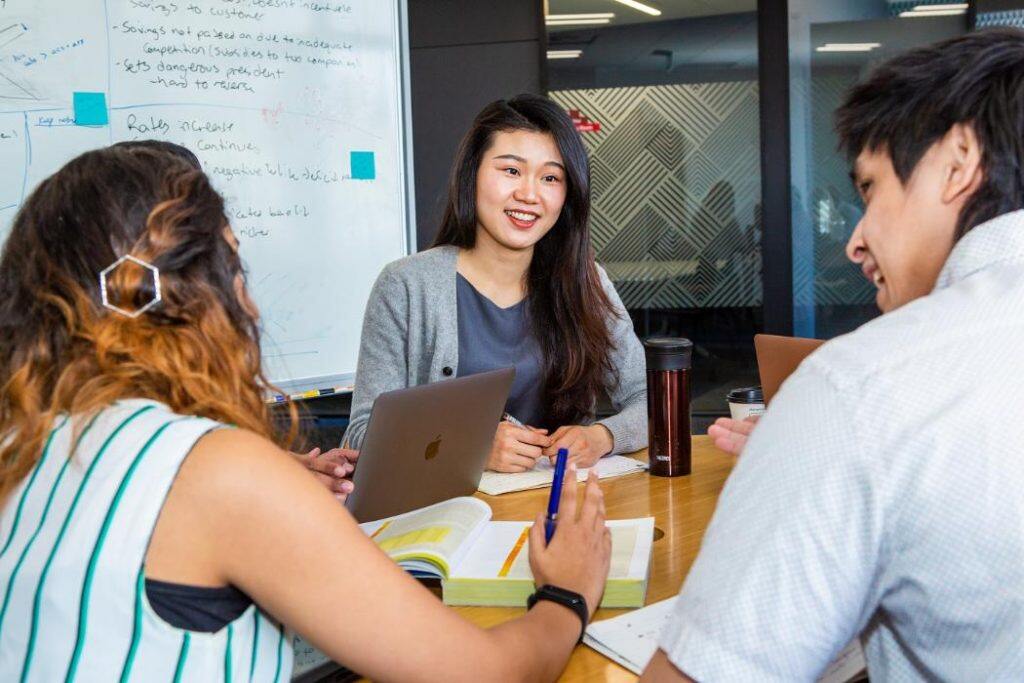International students at the University of Canterbury will work with local businesses keen to expand into Asia under a new partnership scheme.


The Global Virtual Micro-Internship programme was launched this week by the University of Canterbury Business School.
Under the programme, international students studying Business will be matched with local businesses. The aim is to help the students gain real-world experience and enable businesses to benefit from the students’ unique expertise.
The students – including those based in Christchurch and some overseas – will carry out market research focussed on their home country to inform the expansion strategy of their business client. They will submit a report and give a presentation to their client about their findings at the end of the programme.
The Micro-Internship programme was announced at the launch of an Asia New Zealand Foundation report, Te Waipounamu and Asia: South Island Business Connections with Asia Now and in the Future in Christchurch on Wednesday. The report shows markets in Asian countries are very important to South Island businesses but there are challenges in establishing trade links with Asia.
Hurdles include a lack of relevant language skills and lack of detailed market knowledge.
UC Business School Executive Dean Paul Ballantine says the University has a talented group of international students, the vast majority from Asia, who are eager to gain practical work experience.
“Alongside the business skills they develop as part of their studies with us, these students bring with them a wealth of linguistic and cultural knowledge and skills that will be of immense value to any business looking to expand overseas.”
The students’ final presentations will be judged by an expert from UC Business School, with input from the client and the winning teams will get a share of the $1500 cash prize pool.
The UC Business School is looking for businesses interested in participating in the programme – which it will co-ordinate – between 22 November and 10 December this year.
- To register interest email UC Business School Industry Engagement Manager Tim Winfield winfield@canterbury.ac.nz.







































